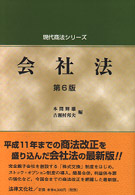- ホーム
- > 洋書
- > 英文書
- > Performing Arts
Full Description
Consent in Shakespeare's Classical Mediterranean fills a gap in knowledge about how female-identified, gender-fluid, and non-binary characters made choices about intimacy, engagement, and marriage in Shakespeare's classical Mediterranean plays.
This classical sequel explores how female-identified, gender-fluid, and non-binary characters accessed agency in Shakespeare's Mediterranean plays set in classical Troy, Athens, Thebes, Antioch, Ephesus, Mytilene, the North African Pentapolis, Tarsus, Egypt, Rome, Antium, Britain, Sardis, Philippi, Sicily, greater Bohemia, and the Balkan region. Through the lens of sources from Eastern and Western Europe, the Middle East, and the Maghrib, Shakespeare's heroines and their supporters may have initially appeared to conform to Early Modern contexts, but the diverse backgrounds of female-identified, gender-fluid, and non-binary characters impacted the right to consent to friendship, affection, betrothal, and marriage in the classical Mediterranean. By focusing on perspective views about female-identified, gender-fluid, and non-binary characters in and around Eastern and Western Europe, the Middle East, and the Maghreb, classical realities collide with Early Modern preconceptions and misconceptions to reveal commonalities and differences in the lived experiences of female-identified and non-binary royalty, nobility, servants, enslaved peoples, matchmakers, courtesans, sex workers, madams, herbalists, tailors, and merchants.
This study will be of great interest to students and scholars in Theatre, Middle East Studies, Asian Studies, Eastern European and Eurasian Studies, African and Maghrib Studies, and Social Justice Studies.
Contents
Foreword
Preface
Acknowledgements
Introduction
Chapter 1: Permission ≠ Consent: Prisoner Exchanged, Affirmative Consent Unchanged in Troilus and Cressida
Chapter 2: Street Rules in Coriolanus: (S)Mothering and Silenced Love in Coriolanus
Chapter 3: Ignoble Nobles: Consent in the Age of Pseudo-Chivalry in The Two Noble Kinsmen
Chapter 4: Roofied Wood: Drugs and BDSM in Reacquired Patriarchy in A Midsummer Night's Dream
Chapter 5: Gold and Girls: Timon's Attempted Murder by Sex in Athens
Chapter 6: Silenced Shades: Timing Revolt Against Oppression in The Winter's Tale
Chapter 7: Losing to Win: The Peril of Virginity in Pericles, Prince of Tyre
Chapter 8: Private Discourse in Public Lives: Survival Equals Victory: Julius Caesar
Chapter 9: Othered Women: A Royal Brat Out-Cleopatra's Herself in Antony and Cleopatra
Chapter 10: Symbolic Freedom: The Anglo-Roman Demi-Transition in Cymbeline
Chapter 11: No Laughing MacGuffin: Domestic Violence in a Carnivalesque of Errors
Chapter 12: Status Matters. Not!: The Inability of Ignobility in Titus Andronicus
Conclusion
Index















